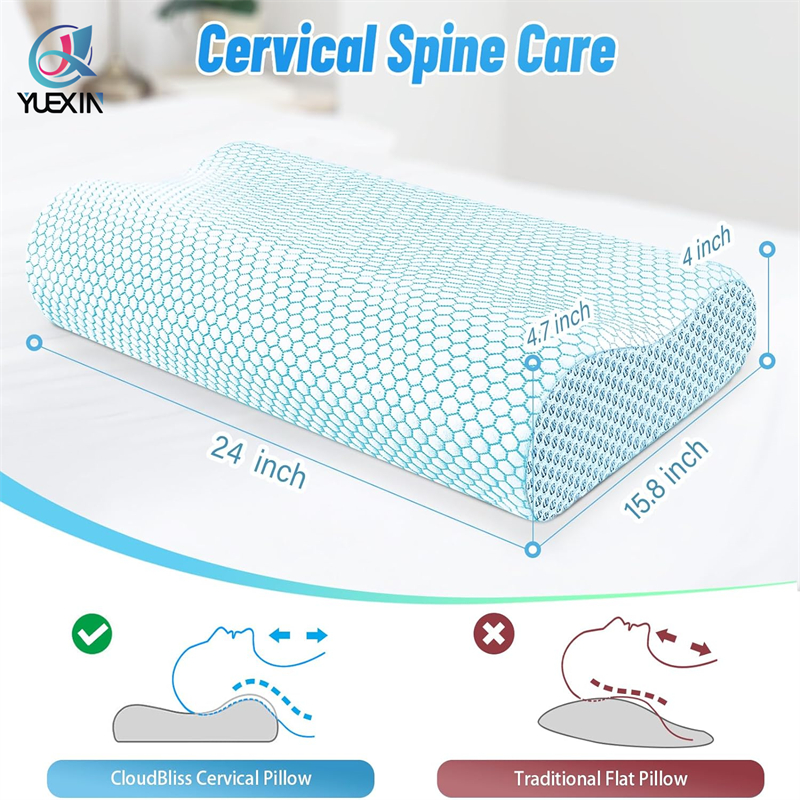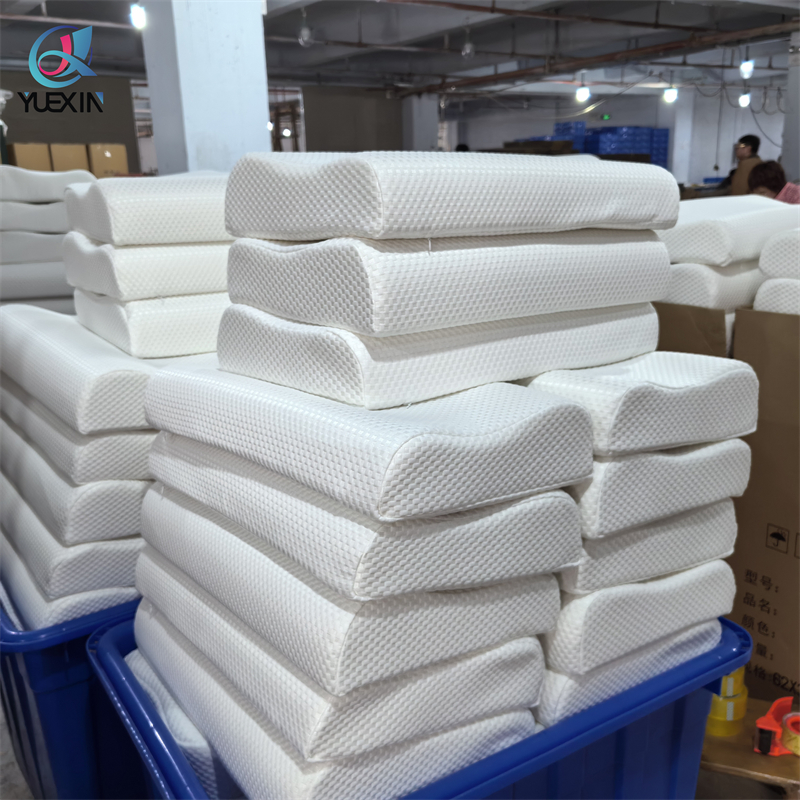Views: 1586 Author: Site Editor Publish Time: 2025-07-11 Origin: Site









Are memory foam pillows really worth the hype? Many people praise their comfort and support, but it’s important to understand both the benefits and drawbacks before making a decision. In this article, we’ll explore how memory foam pillows work, compare them to traditional pillows, and help you choose the best option for your sleep.

Memory foam pillows have gained massive popularity for their ability to contour to the shape of your head and neck, offering targeted support and reducing pressure points. Originally developed by NASA in the 1960s, memory foam was designed to respond to pressure and heat, improving comfort and safety for astronauts. Today, it’s a favorite material for pillows and mattresses, helping sleepers achieve better spinal alignment and reduced tossing and turning.
Memory foam pillows are made from viscoelastic polyurethane foam, a special material that reacts to body heat and pressure. This allows the pillow to mold to your unique shape, providing personalized support whether you sleep on your side, back, or stomach.
When you rest your head, the foam softens under pressure, evenly distributing weight and relieving tension in your neck and shoulders. This helps maintain proper spinal alignment, reduce discomfort, and support healthier sleep posture throughout the night.
Memory foam provides customized support for your head, neck, and spine. Many users describe a “hugging” sensation that promotes deep relaxation and helps reduce morning stiffness.
Unlike regular pillows that lose shape quickly, memory foam retains its structure and support for years. With proper care, a quality memory foam pillow can last 3–5 years or more.
If you share a bed, memory foam absorbs movement, minimizing disturbances when your partner moves at night.
These pillows help reduce neck and back pain, support spinal alignment, and can even assist with snoring and mild sleep apnea by keeping airways open.
Heat Retention – Standard memory foam can trap heat. Cooling gel or ventilated designs can solve this.
Initial Firmness – New pillows may feel firm at first, softening after a few nights of use.
Off-Gassing – Some may notice a mild smell at first; it usually disappears after airing out.
Not Ideal for Stomach Sleepers – These pillows may feel too firm for stomach sleeping.
Memory foam contours to your shape, offering better neck and spine support than most traditional pillows (down, polyester, etc.), which often flatten and fail to maintain alignment.
Memory foam can last several years, whereas traditional pillows often lose shape within 1–2 years and require frequent replacement.
One common myth is that memory foam pillows are always expensive. In reality, quality doesn’t have to come at a high price.
At Dongguan Yuexin, we offer premium memory foam pillows at an affordable range of $10–$40, making them accessible to everyone without compromising on comfort or durability.
| Pillow Type | Average Price Range | Durability | Support Level |
|---|---|---|---|
| Memory Foam Pillow | $10–$40 | 3–5+ years | Excellent |
| Traditional Pillow | $10–$30 | 1–2 years | Moderate to Soft |
✅ Best For:
Side and back sleepers needing spinal alignment
People with neck, shoulder, or back pain
Sleepers who want long-lasting support and pressure relief
❌ May Not Suit:
Stomach sleepers (may prefer thinner pillows)
People who sleep hot (unless choosing a cooling model)
Those sensitive to odors (choose low-VOC options)
Sleeping Position:
Side → Thicker, medium to firm
Back → Medium-firm
Stomach → Thinner, softer
Cooling Features:
Gel-infused or ventilated designs regulate temperature and improve airflow.
Firmness & Thickness:
Choose based on personal comfort and neck support needs.
Yes — for most sleepers, memory foam pillows are an excellent investment in sleep quality. They provide personalized comfort, pain relief, and durability at an affordable price. While they may feel firm at first or trap heat in some cases, modern designs solve many of these issues.
If you're looking for a comfortable, supportive, and budget-friendly pillow, memory foam is definitely worth considering.
Q: Are memory foam pillows good for neck pain?
Yes, they maintain proper spinal alignment to help reduce neck discomfort.
Q: How long do memory foam pillows last?
Typically 3–5+ years with proper care.
Q: Are they suitable for stomach sleepers?
Not usually — stomach sleepers may prefer thinner, softer pillows.
Q: Do all memory foam pillows retain heat?
No, many modern options use cooling gel or ventilation to keep you cool.
